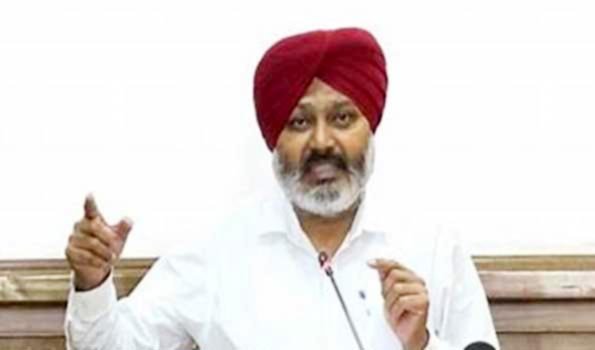New Delhi, Sep 5 (UNI) Supreme Court’s five-judge Constitution bench on Tuesday reserved its judgement on the batch of pleas challenging the validity of Centre’s August 2019 decision to scrap J&K’s special status and bifurcating it to Union Territories.
The five-judge Constitution bench, led by Chief Justice of India (CJI) Dr Dhananjaya Yeshwant Chandrachud reserved its verdict after hearing 16 days of arguments and submissions from petitioners, respondents — Centre and others — on the issue.
The four other judges in the Five-judge Constitution bench of the Supreme Court, besides the CJI heading it, were Justices Sanjiv Khanna, Sanjay Kishan Kaul, B R Gavai and Surya Kant, heard the arguments from parties.
The Solicitor General (SG) Tushar Mehta, senior law officer representing the Union of India (UOI) had told the Apex Court that the government is always for national integration.
He said that he is not on elections and politics. I am on national integration. “People’s betterment is being taken care with this,” Mehta said.
Defending the Centre’s August 5, 2019 decision to abrogate Article 370, the SG said that in 2020 for the first time in decades local body elections took place. No hartal, no stonepelting, no curfew.
“New hotels are being built. Everyone has benefited from the decision,” Mehta had told the Apex Court.
He further had told the SC that youth, which used to be employed by terror groups, inimical to India, are employed gainfully now.
“These policy considerations (by the Centre) which decided the reorganisation was correct or not. The blue print ensured what was done so that jammu and kashmir returns to normalcy,” Mehta said and defended the abrogation of Article 370.
Om the other hand, petitioners who had moved the Supreme Court opposed the abrogation of Article 370 and argued that it was not for betterment of people of J&k and it should be quashed.
Senior Advocate V Giri, for one of the Petitioners, argued that Article 370 carved out an area for Jammu and Kashmir which was not ‘in sync’ with the general federal features of the Constitution for the rest of the country 8 hours ago.
While Kashmir has gone through some tough times in history, with the abrogation of Article 370 it feels like Kashmir has been exiled from itself. Recent events, like the communication blackout, have confined Kashmiris to their homes, a lawyer for one of the petitioners argued.
The petitioners argued that Article 370 acted as a vital “bridge” between the state of Jammu and Kashmir and India; its removal would equate to severing that connection.
The essence of representative democracy suffered when Parliament alone became the voice for a region’s desires, overlooking the constitutional requirement to consider the state’s perspectives, the petitioners argued.











